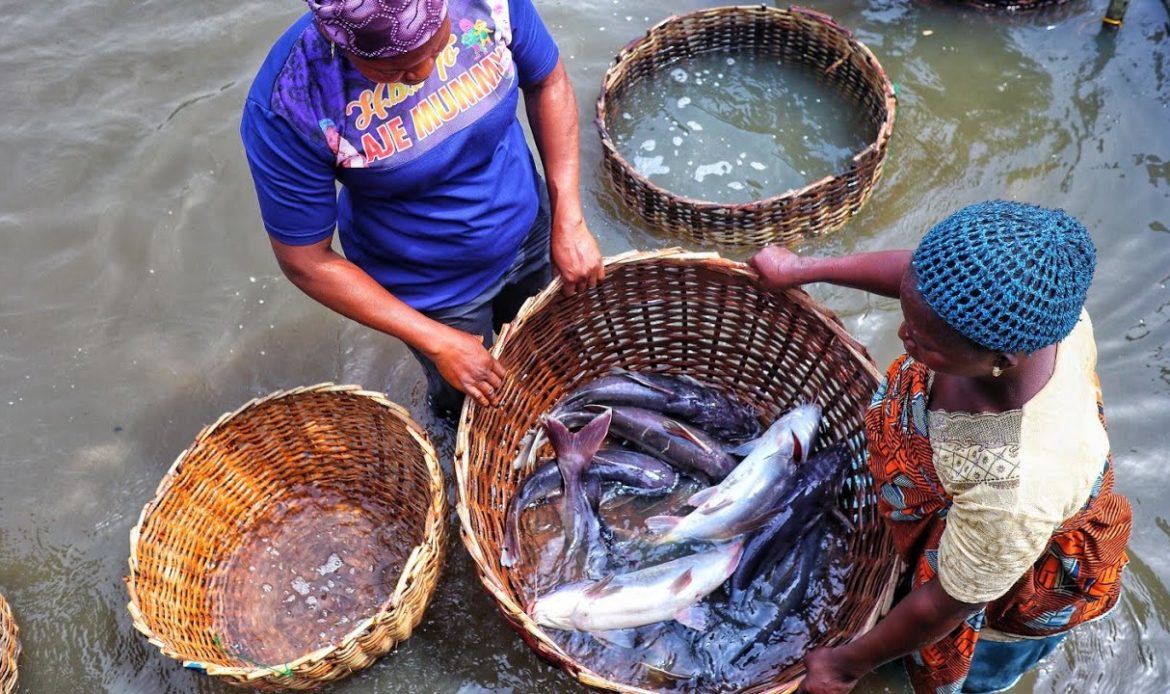The Ancient Tradition of Epe Fish Market where only Women Trade

The hustle and bustle of buyers very early in the morning at Epe Fish Market clearly announce its popularity in the Lekki-Epe axis of Lagos State, Nigeria. Known as a fish or seafood market among residents of the community, Epe Fish Market is also called Oluwo Retail Market. It is located at the seashore, just some meters away from the town and described as the commercial capital of fish business/trading in Lagos. Although commissioned on the 10th of November 1989 by M.A Olagbaiye, the sole Administrator of Epe Local Government for the Lagos State Market Development Board, some claim that the market is as old as the town itself.
Epe is one of the coastal regions in Lagos State with fishing as the major occupation of the indigenes. The occupation was often handed down from one generation to another. During the 2006 census, online sources put the population of Epe at 181,409. The town is famous for championing festivals such as Ebi Day, Epe Day, Kayo-Kayo, amongst others.
The fish market is as busy as every other popular market in Nigeria with buyers and sellers walking in and out of the place. Buying and selling start as early as 6 am and ends at 6:30 pm. A typical market day starts with traders assembling at the riverbank, waiting for fishermen to deliver seafood to them.
Read Also: Lagos Seafood Festival
Traders of Epe Fish Market are mostly women. This is because of the distribution chain which allows men to fish and bring home for the women to sell. However, only two Hausa men who sell dry pepper, onions and ginger along one of the exits of the market have been seen trading.
The market operates in such a way that allows for division of labour. The fishermen onshore catch the fishes while the boatmen, who serve as dispatchers often deliver them to the traders on land. The fishermen package the fishes and other sea creatures like crabs, prawns, shrimps, and them to each trader with proper descriptions on the package. Traders in turn assemble to collect their packages while retailers from other markets buy from them.
Apart from buying and selling, some industrious sets of women make a living by assisting traders and buyers in cutting and cleaning fishes at the market, charging them based on the size and cost of their fish.
Tourists and buyers who have explored the market from different parts of Nigeria have attested to seeing edible sea creatures of various kinds. Recently, the fish market has evolved beyond only the sale of fish and seafood. Some traders now sell kitchen wares, clothing items, snakes, bush meat, snail, alligators, antelopes, grass cutters, crocodiles and porcupines. Hunters also supply animals killed during hunting to restaurant owners, retailers and individuals.
It is believed that if the market is properly maintained, it will be a huge source of revenue for both local and state governments.
Have you ever visited the Epe Fish Market before? Please share your experience with us.
